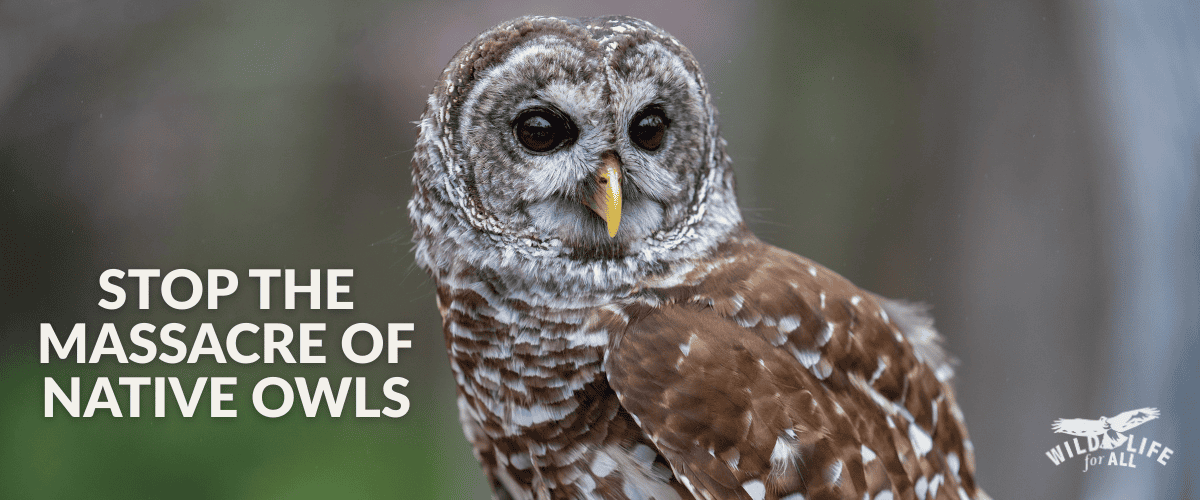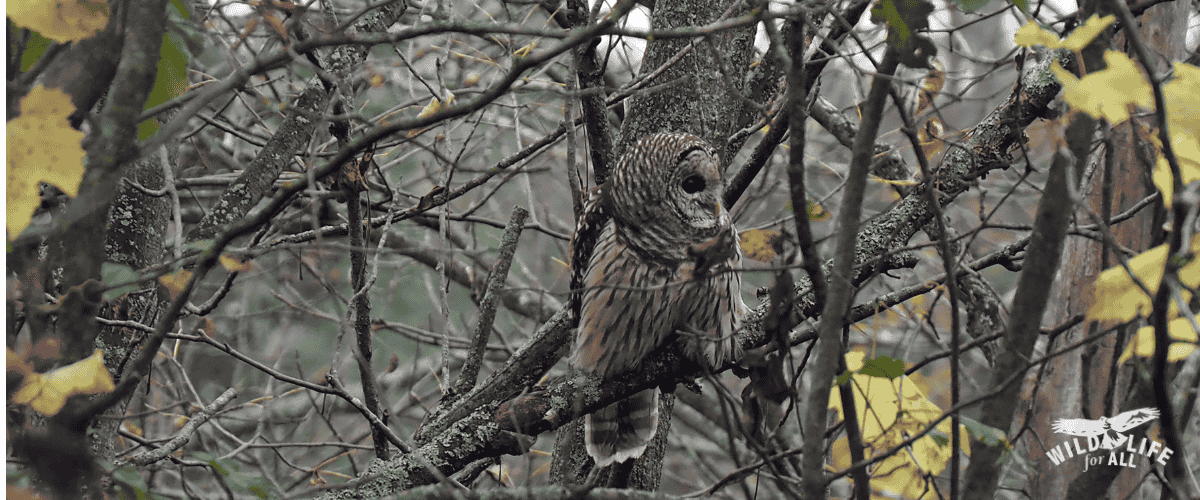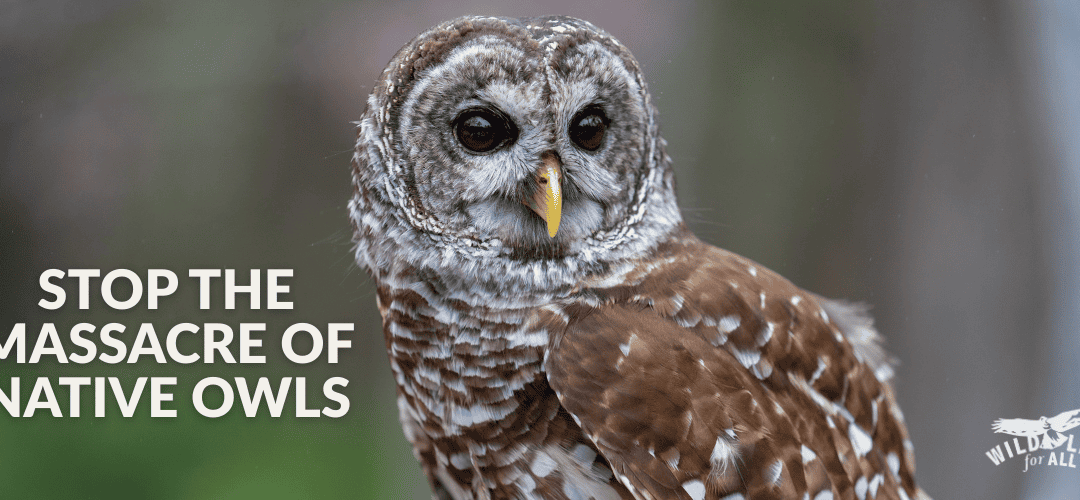Tell Congress: Vote YES to nullify the billion-dollar, 500,000 owl kill plan and stop the barred owl massacre. Demand humane, science-based wildlife management and real habitat protection now.

ACTION ALERT: Stop the Billion-Dollar Massacre of Native Owls
Tell Congress: Vote YES to Nullify the Barred Owl Kill Plan
The U.S. Fish and Wildlife Service (FWS) has officially launched a war on native wildlife. Their plan? Spend up to $1.35 billion in taxpayer dollars over the next 30 years to kill half a million barred owls—a native species protected under the Migratory Bird Treaty Act for over a century.
Why? Because these owls are competing for habitat with their close cousins, the threatened northern and California spotted owls.
This plan is cruel, costly, futile—and proof that our system of wildlife governance is deeply broken.
Instead of protecting biodiversity by conserving habitat and addressing root causes of decline—like logging, climate change, and mismanagement—our government is proposing the mass killing of one native species to avoid actually protecting habitat to help spotted owls. It’s a dangerous precedent that treats wildlife as enemies to be eliminated, not as beings worthy of coexistence and compassion.
This is not conservation. This is failure.
At Wildlife for All, we’ve long warned that our wildlife governance system is outdated, undemocratic, and too often driven by lethal control and special interests. The Barred Owl Management Strategy is a perfect example:
- A native species is targeted for extermination.
- The “solution” is inhumane and scientifically unsound.
- Public opposition is ignored.
- And powerful agencies act as judge, jury, and executioner—with no meaningful accountability.
Thankfully, bipartisan leaders in both the Senate (S.J. Res. 69) and the House (H.J. Res. 111) are taking action to nullify this reckless plan. Support is building rapidly, with 435 organizations — including Wildlife for All and 35 local Audubon chapters in California, Oregon, and Washington — speaking out against this massacre. Now it’s up to us to make sure Congress follows through.
TAKE ACTION
Contact your two U.S. Senators and your Representative TODAY. Urge them to vote YES on S.J. Res. 69 and H.J. Res. 111 to nullify the Barred Owl Management Strategy.
- Send a letter using this form.
- Then call the Capitol switchboard at (202) 224-3121, give your ZIP Code, and ask to speak with your members of Congress. Tell them:
“I’m a constituent and I strongly urge you to support the Congressional Review Act resolutions (S.J. Res. 69 and H.J. Res. 111) to stop the billion-dollar barred owl kill plan. This cruel and unworkable strategy is not conservation — it’s a government-sponsored slaughter of native owls.”

Killing barred owls won’t save their close cousins, the spotted owls, like this one pictured.
Why This Matters
Your action today signals that the public is watching and demanding change, creating the momentum needed for both state and federal reform. On the whole, this plan is:
- Unworkable: Killing 30 barred owls for every spotted owl won’t solve habitat loss. Barred owls will quickly recolonize cleared areas—creating an endless cycle of killing.
- Expensive: One recent grant put the cost at $3,000 per owl. That’s $1.35 billion for a plan destined to fail.
- Inhumane: Shooters using night scopes in national parks will orphan chicks, terrify wildlife, and likely kill spotted owls by mistake.
- Ethically indefensible: The role of government is not to “manage” social competition between wild animals. This is ecological arrogance at its worst.
This federal failure also underscores why state-level wildlife governance reform is urgent. Federal agencies often defer to state wildlife boards when setting management priorities, and most of those boards are still dominated by hunting and industry interests. When state commissions treat lethal control as the default “solution,” it gives cover for federal agencies to follow suit. Reforming state systems to be democratic, science-based, and accountable—so that all wildlife and all people have a voice—is the only way to break this cycle of kill-first policies.
By modernizing state governance, we build the foundation for federal policy that protects habitat and coexists with wildlife instead of scapegoating it. Federal agencies often lean on state wildlife boards when setting management priorities, and most of those boards remain dominated by hunting and industry interests. When state commissions treat lethal control as the default “solution,” it gives cover for federal agencies to follow suit.
Every public comment, every call to a legislator, every op-ed chips away at that status quo. Lawmakers and commissioners are tracking public pressure in real time as Congress considers the owl resolutions and as state commissions draft next year’s policies. Reforming state systems to be democratic, science-based, and accountable—so that all wildlife and all people have a voice—is the only way to break this cycle of kill-first management.
This is bigger than owls. This is about who gets to decide who lives or dies, and whether our wildlife agencies act in the public’s interest or cling to outdated, violent models of management.

